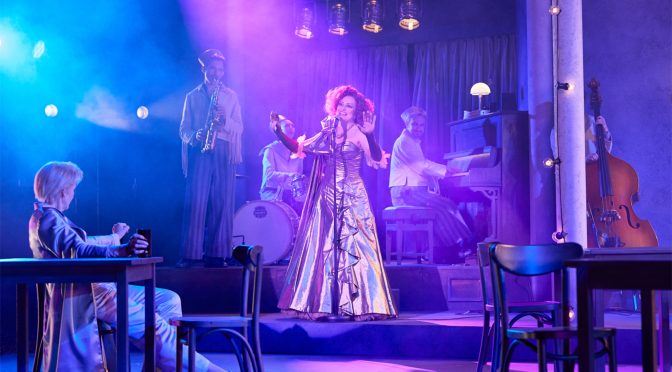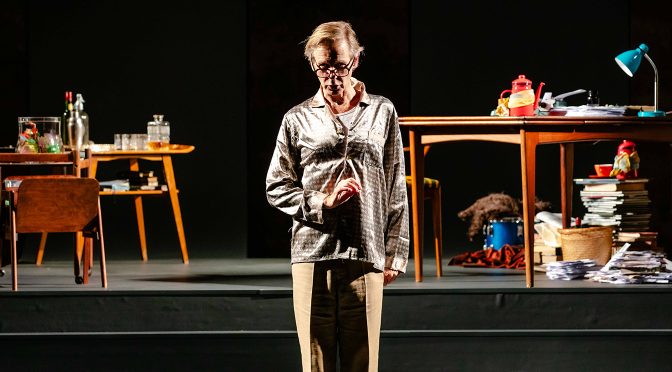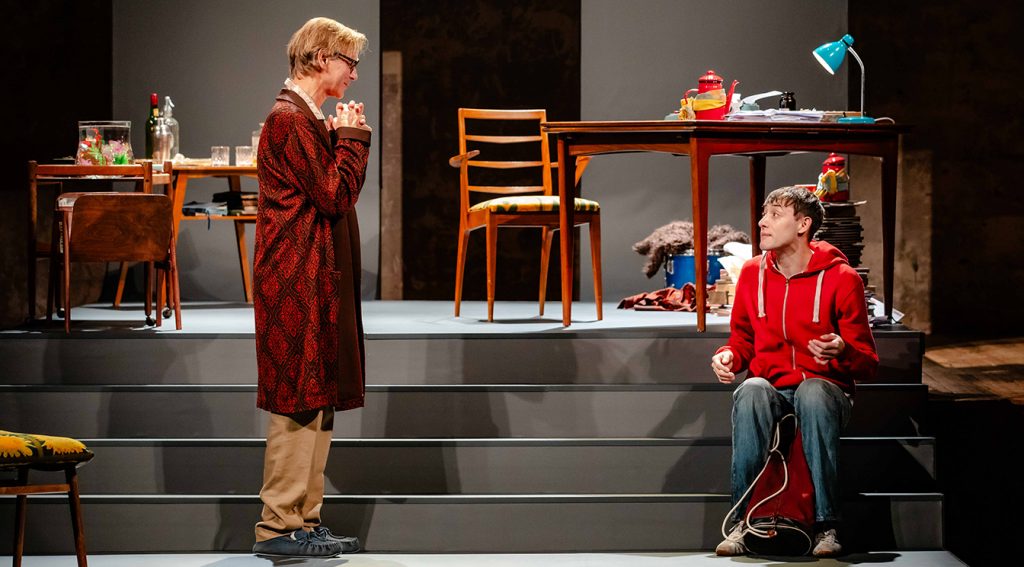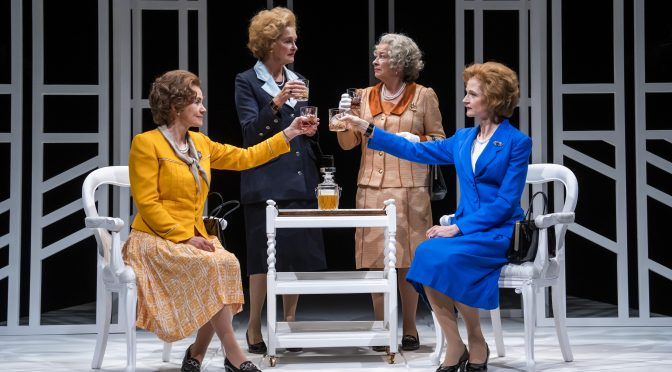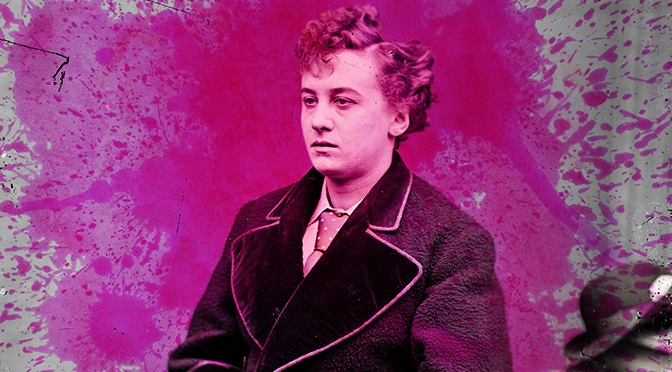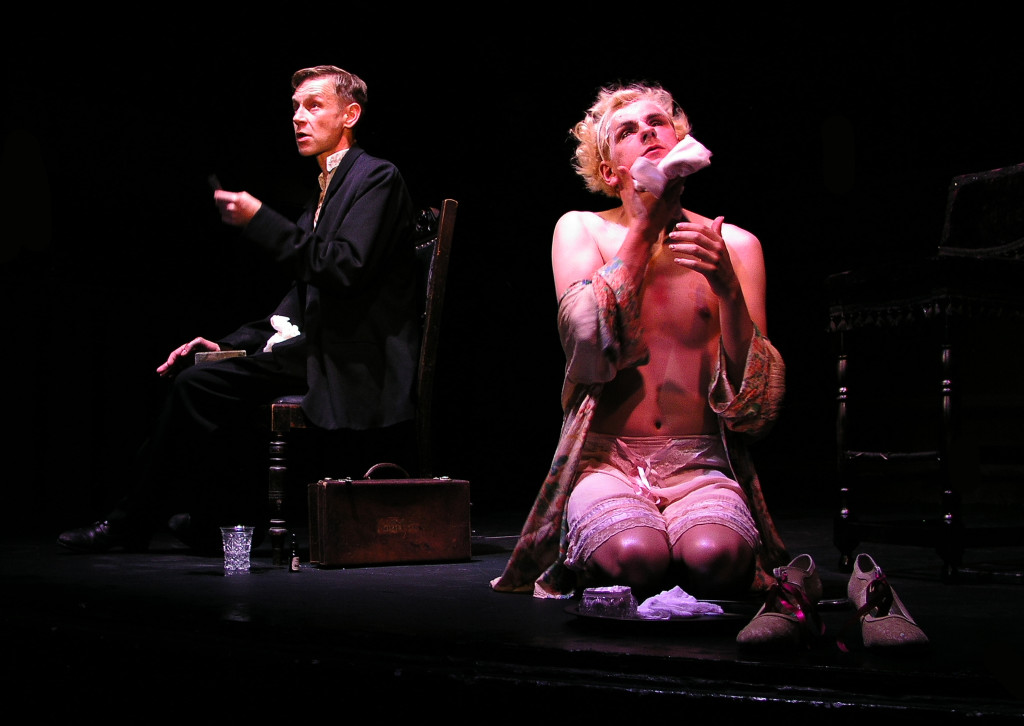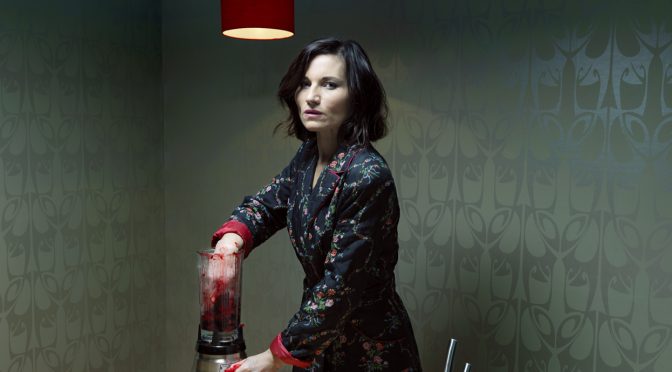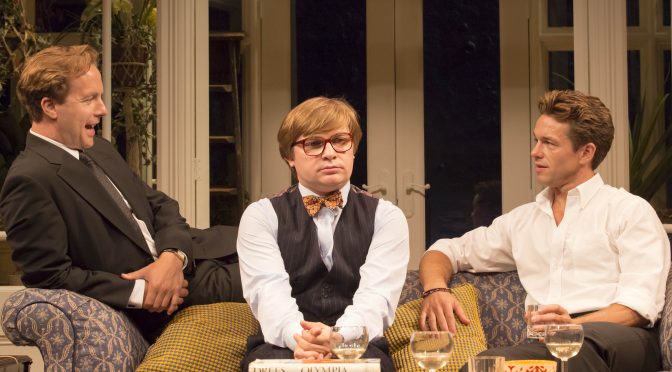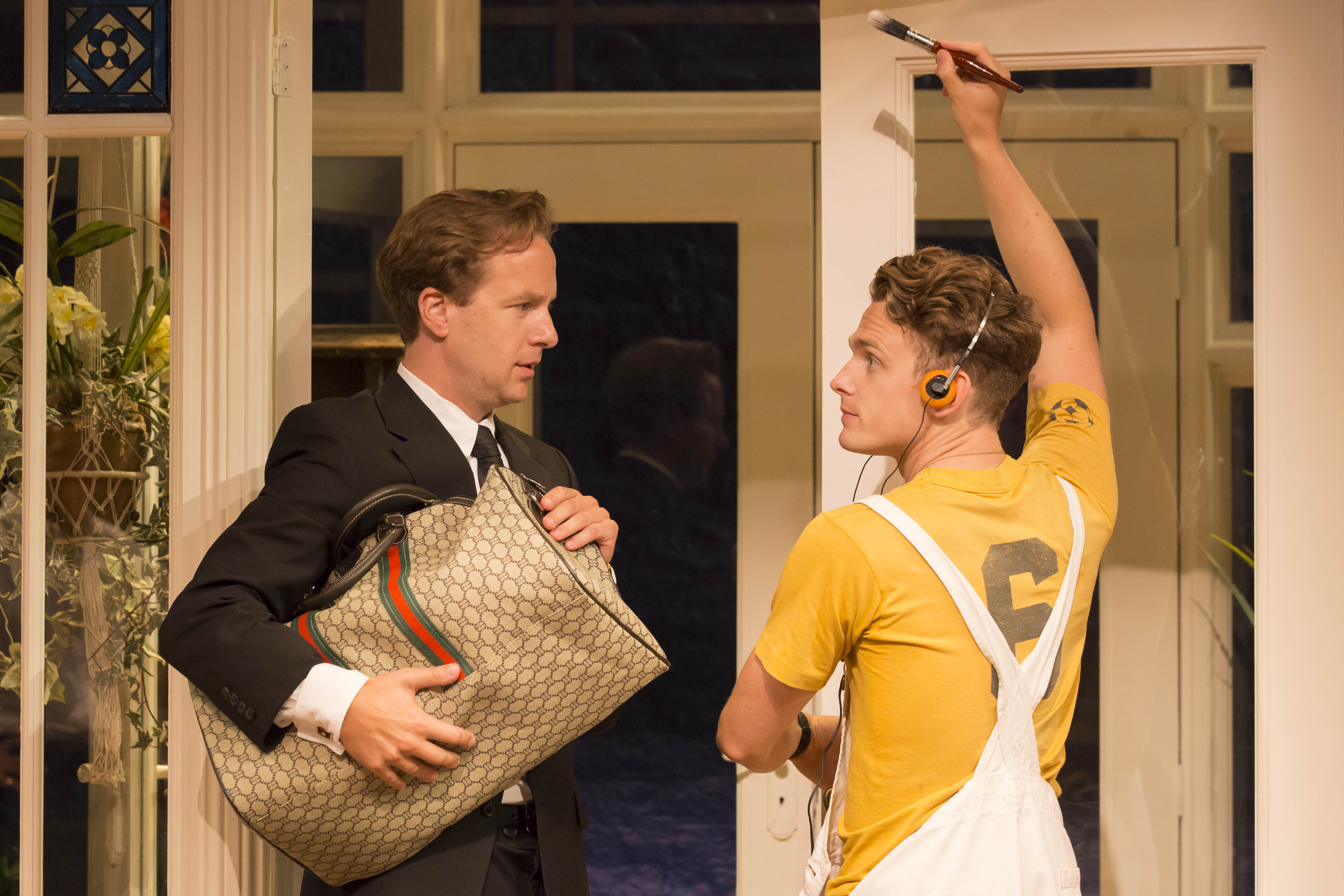This sparky new production is bold and zippy. It marks the welcome return of Shakespeare to this gorgeous venue – apart from a brief Romeo and Juliet in 2021, productions have focused on younger audiences. Director Owen Horsley offers a big, luxurious show with lots of fun and music.
Everything happens in a bar, named, in neon, after our heroine Olivia. The characters are either customers or her entourage, musicians dressed in Ryan Dawson Laight’s clever sailor-inspired outfits. Fabian is renamed Fab Ian (which tickled me no end) while Sir Toby is a drag performer and takes to the mike, along with Olivia’s fool, Feste.
It’s all eye-catching, a drunken atmosphere isn’t a bad idea, and although sometimes the single setting proves cumbersome, it isn’t a bad innovation. But underneath, the production is a traditional affair. It is spoken wonderfully. The shipwrecked twins who arrive and cause havoc, played by Evelyn Miller and Andro Cowperthwaite, sound especially good.
Music should always play a big part of Twelfth Night. And music suits this venue well. The production goes all out and composer Sam Kenyon has been busy. The band adds atmosphere and pace, with Shakespeare set to song very nicely. It’s a shame the quality of the delivery isn’t consistently high, even if Jule Legrand’s Feste and Michael Matus’ Sir Toby have plenty of charisma.
Like all good productions, Horsley searches for insight, to show us something new. Here it is with Olivia and, thankfully, Anna Francolini, who takes the role, meets the challenge. Olivia is the star turn in her own bar, getting the best of Kenyon’s numbers, carrying her brother’s ashes around in an urn, overt in her attraction to Viola, and often bizarrely dressed, she is a larger-than-life character who threatens to unbalance the show. For instance, Raphael Bushay, as would-be suitor Orsino, doesn’t seem to stand a chance. And Olivia ends up alone… with the idea that Sebastian stays with Antonio. I did wonder if this Olivia might be a little too mad… but Horsley is on firm ground, after all the character questions her own sanity.
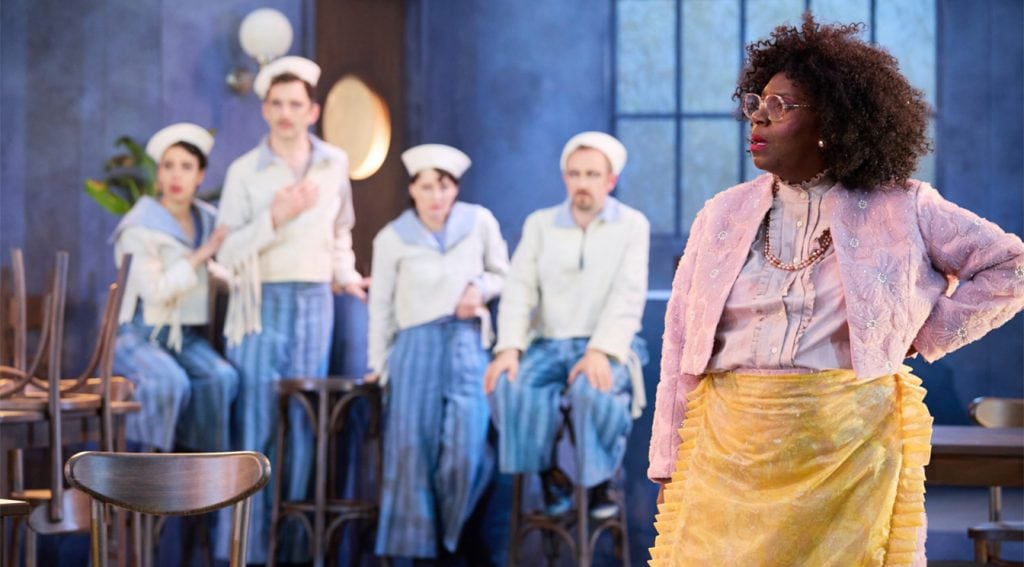
It all makes for more laughs than romance. But Horsley doesn’t shy away from the melancholy of many characters or more vicious moments in the play. “Sad and merry madness” is the key. It should be no surprise that the balance between the two can be stark. So, while the tricks masterminded by a particularly strong Maria (Anita Reynolds) are nasty, Richard Cant proves a sympathetic Malvolio. It’s all a gorgeous night out, but, as it should be, a thought-provoking one too. Great, grown-up fun.
Until 8 June 2024
Photos by Richard Lakos

